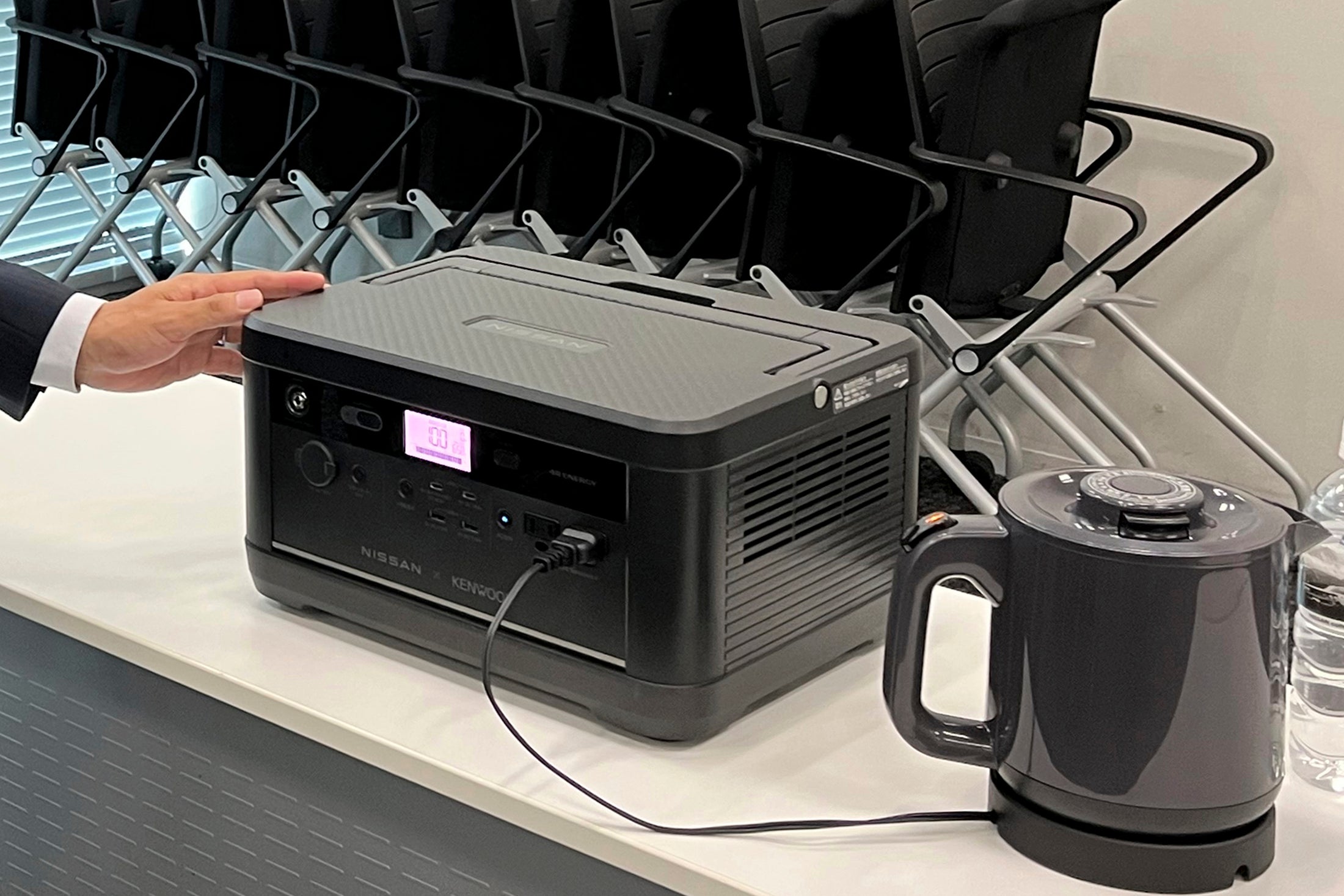Nissan is reusing the batteries from old Leaf electric vehicles to make portable power sources
Batteries in older Nissan Leaf electric vehicles are getting a new life as portable power sources that can be used to run gadgets on the go or deliver emergency power in disasters

Your support helps us to tell the story
From reproductive rights to climate change to Big Tech, The Independent is on the ground when the story is developing. Whether it's investigating the financials of Elon Musk's pro-Trump PAC or producing our latest documentary, 'The A Word', which shines a light on the American women fighting for reproductive rights, we know how important it is to parse out the facts from the messaging.
At such a critical moment in US history, we need reporters on the ground. Your donation allows us to keep sending journalists to speak to both sides of the story.
The Independent is trusted by Americans across the entire political spectrum. And unlike many other quality news outlets, we choose not to lock Americans out of our reporting and analysis with paywalls. We believe quality journalism should be available to everyone, paid for by those who can afford it.
Your support makes all the difference.Batteries in older Nissan Leaf electric vehicles are getting a new life as portable power sources that can be used to run gadgets on the go or deliver emergency power in disasters.
Japanese automaker Nissan Motor Co. has sold more than 650,000 Leaf EVs. Their batteries often retain a charging capacity longer than the car's life span.
Nissan says it is using the old batteries in portable power sources it developed with electronics maker JVCKenwood Corp. and 4R Energy Corp., a company co-owned by Nissan and Sumitomo Corp. which works on ecological vehicles and power storage systems.
The 14.4-kilogram (32-pound) power source sells for 170,500 yen ($1,170) in Japan. Overseas sales are not yet set.
Each Leaf uses 48 battery modules. The portable power stations contain two modules.
Nissan officials said they are testing the batteries in Leafs after their owners stop driving them, and reusing those that can still hold a charge.
EV batteries use expensive rare metals and other raw materials, and their manufacture produces carbon gases, so reusing them for other purposes helps sustainability.
Balakumar Balasingam, an associate professor of electrical and computer engineering at the University of Windsor who isn't involved in the Nissan project, said batteries can no longer be used to drive electric cars when their charge capacity declines to about 80%, but can still be used for other purposes.
“Retired EV batteries have great potential in energy storage applications,” he said.
“Without such a solution, billions of EV battery packs will be made and then prematurely recycled in the next decade. That will be a problem for sustainability.”
___
Yuri Kageyama is on Twitter https://twitter.com/yurikageyama